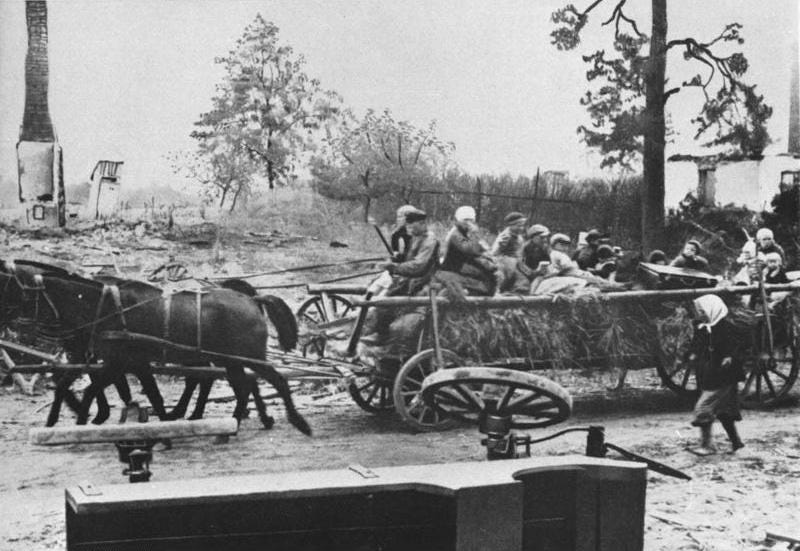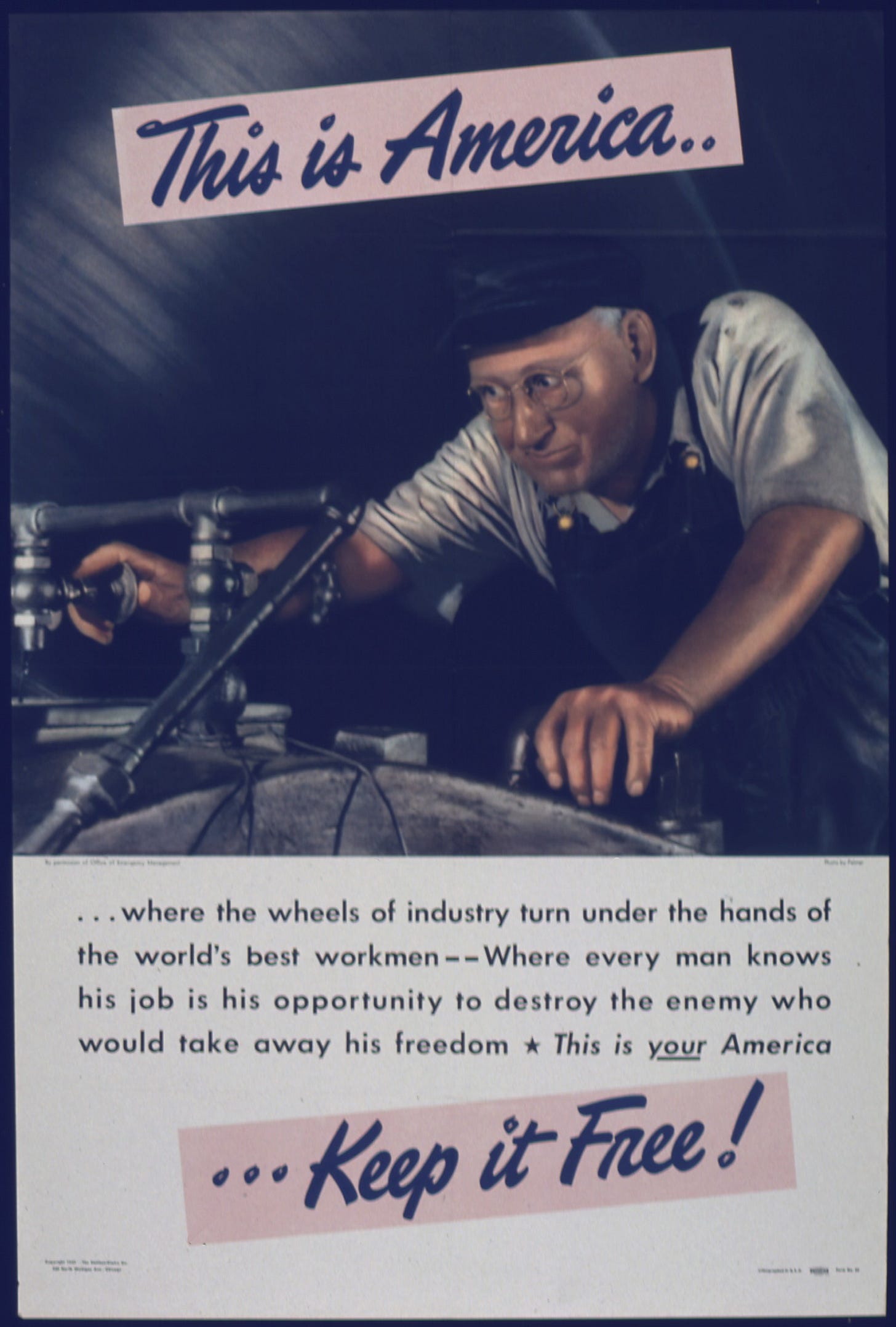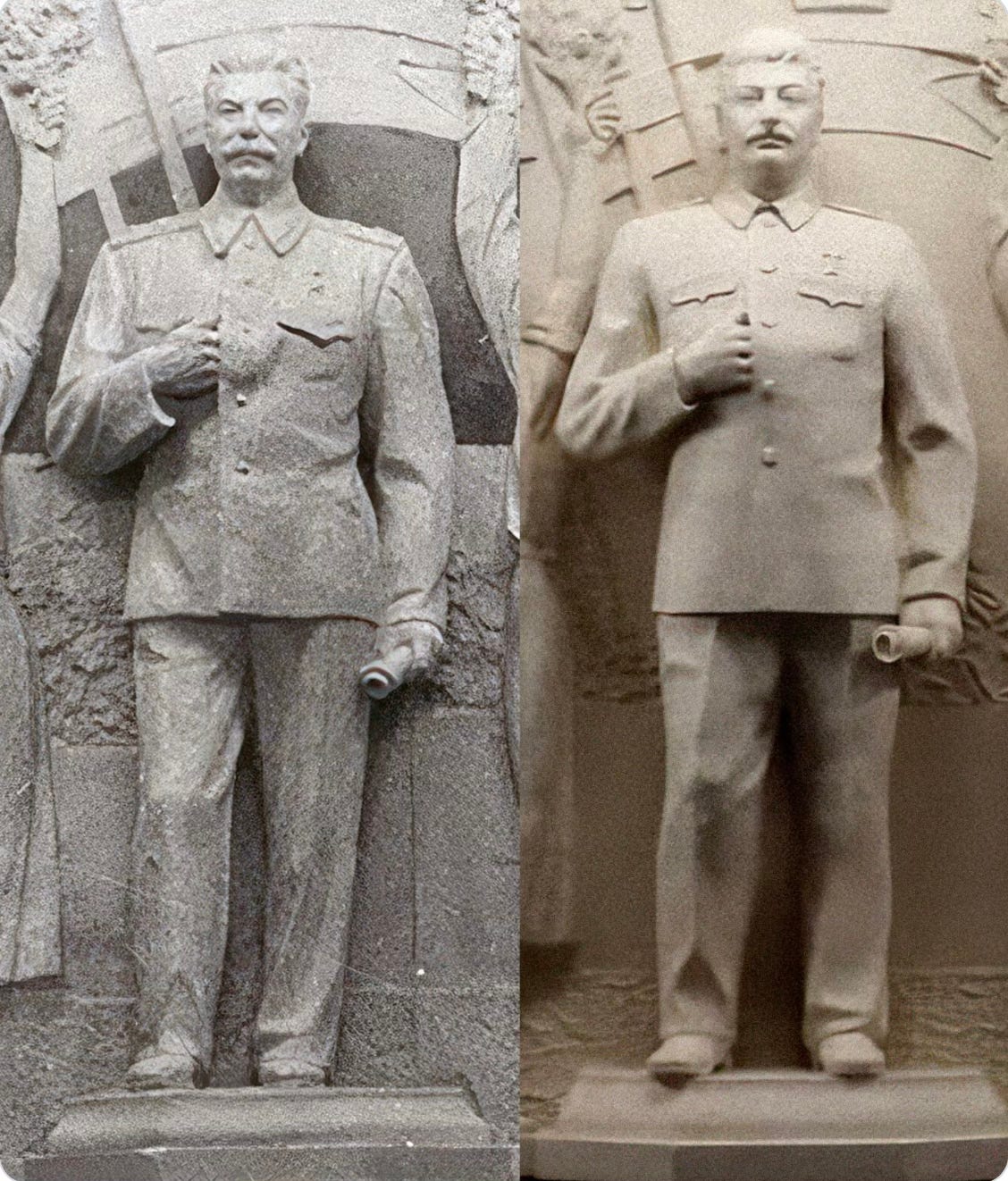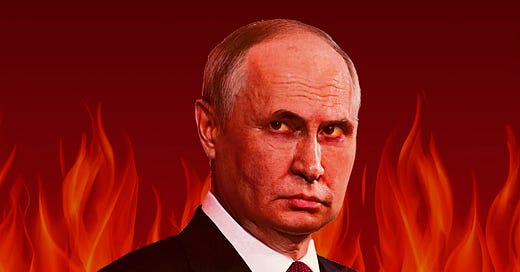"You Americans Don't Know What War Is"
Why do we get it so wrong when it comes to the evil figures of this world?

“You Americans don't know what war is.” Such was the harsh statement that my mother’s cousin Siegfried expressed to my parents sometime in the late 1980s. They were speaking by phone between my parents’ home near Chicago and Siegfried’s home in Oberhausen, then West Germany.
Siegfried had recently seen the American movie Platoon and encouraged my parents to watch it, telling them that it would give them an idea of what war is really about.
My younger self couldn’t understand what he meant. After all, my father had served in World War II, and there were still plenty of veterans who had also participated in that conflict. Plus, Platoon was about Vietnam during the 1960s; not Europe in the 1940s.
However, my older self has since learned more about my family’s history, and has also observed multiple foreign policy foibles of recent presidential administrations. Finally, a recent article by the brilliant Konstantin Kisin, entitled “Why Americans Don’t Understand Putin,” brought that 40-year old comment by my mother’s cousin into sharp focus.
First, Some History
Allow me to set the stage with a little family history.
My mother’s parents were ethnic Germans who immigrated to the United States prior to World War I — my grandfather around 1905, my grandmother in 1911. I use the term “ethnic” because they were not from Germany; both hailed from Lithuania as members of a longstanding German minority. Their families had lived in Lithuania for many generations.
But while the rest of my grandfather’s family came to the United States after the Great War and became citizens, my grandmother’s family remained in Europe. Siegfried was part of that family. At the time of his birth, they were living in Memelland, a disputed border region between East Prussia and Lithuania. In 1939 Germany took control of the area, and the German-majority citizens of Memelland, Lithuania, became citizens of the Third Reich.
During World War II, Siegfried was conscripted into the Wehrmacht at the age of 17. His father and uncle — despite their age — were also drafted. Siegfried was seriously wounded and taken in by the British, who held him until the end of the war. His father and uncle survived, although his uncle ended up in a Soviet POW camp.
Meanwhile, the women of the family fled the oncoming Soviet army at the end of the war. It was two years before the family members found each other — fortunately they were in an Allied sector of Germany, not Soviet.

No doubt these experiences were what prompted Siegfried to say, “You Americans don’t know what war is.”
Which is Why We Don’t Get Putin
Russian-British writer Konstantin Kisin echoed this assessment of Americans in an article published by The Free Press, “Why Americans Don’t Understand Vladimir Putin.”
Kisin began by recounting President Donald Trump’s recent frustration with Russian President Vladimir Putin over the latter’s recalcitrance in ending the war he started in Ukraine.
“I’ve always had a very good relationship with Vladimir Putin of Russia, but something has happened to him. He has gone absolutely CRAZY!”
Well, duh. Nothing “happened” to Putin. If only Trump (along with former presidents Joe Biden, Barack Obama, and George W. Bush) would realize one truth that presidents never seem to grasp: Putin does not operate with the same mindset as an American. Moreover, he cannot be trusted to honor any agreement.
But American presidents have been eager to take him at his word, Kisin observed.
U.S. presidents prefer (or at least pretend) to believe this, because it prevents them from having to face the reality of who Putin has always been, and what that means for America and the West.
Why do they fall for this every time, it seems? It’s because we Americans have never been invaded, or endured genocides, or religious persecutions, or massive famine. Instead Americans — buoyed by freedom and aided by immigrants like my grandparents and millions before them — built a nation of industrial power and wealth, protected by vast oceans on either coast. Anything is possible in the United States of America. It’s in our DNA.

That archetypal “can-do” spirit, however, has its flip side — it has rendered many of our leaders naïve in the eyes of older nations.
The open, welcoming, and positive attitude that is the default setting in America is widely regarded in many parts of the world as evidence of gullibility, unseriousness, and naïveté. It is seen, sometimes justifiably, as an attitude that leaves people vulnerable to deception. Not because Americans are stupid, but because their desire to believe in the good of others makes it harder for them to recognize when others are not, in fact, good.
Why Does Putin — and Russia — Act Like They Do?
For starters, notes Kisin, Russia was conquered in the 13th century by Genghis Khan and his Mongols. The brutal occupation lasted 240 years — the same amount of time that America has existed as a nation.
Later came the Smuta, a 15-year period after the death of Ivan the Terrible in 1584 which resulted in a Russian version of Game of Thrones. The Smuta, or “Times of Trouble,” was accompanied by famine, disease, and foreign invasion. One-third of the Russian population perished during those times. Because of this, writes Kisin, “one of the key conclusions Russians drew from this is that whatever else he is, a ruler must be strong to maintain order. A weak ruler leads to chaos. And chaos is to be avoided at any cost.”
The 20th century opened with Bolshevism and the Russian Revolution of 1917, which ushered in Communism and bloody tyrants like Vladimir Lenin and Josef Stalin. The misery culminated in World War II, or, “the Great Patriotic War,” in which the USSR lost about 20 million people. As Kisin writes:
These historical experiences inevitably produce people who see the world through such different lenses that it might as well be a different world. Centuries of pain, poverty, famine, war, brutality, suspicion, and humiliation do not produce happy, smiling, positive go-getters.
Vladimir Putin was born in 1952, one year before the death of Josef Stalin and the end of his gulags, mass executions, and imprisonments. Putin became an officer of the intelligence bureau KGB, and would have known of Stalin’s crimes by that point. However, Putin operates in the same manner as the former Soviet despot, by invading Ukraine, stealing its children, torturing prisoners of war, and slaughtering civilians.
And lo and behold, Vladimir Putin has just installed a replica of a monument to Josef Stalin in the Moscow Metro. The original was built in 1950, but removed in the 1960s during an era of de-Stalinization in the USSR. But now Vladimir Putin apparently sees the murderer of up to 60 million people as some sort of hero for Mother Russia.
That tells us all we need to know.

And it’s not just Stalin. Putin apparently also worships Russian fascist philosopher Ivan Ilyin, whose remains he repatriated back to Russia and consecrated in 2009, and whom Putin considers an inspiration.
Putin quotes Ilyin in his justifications for authoritarianism, illegal annexation of sovereign lands, and continued animosity toward the West.
Most of the speech was devoted not to Ukraine, but precisely to the confrontation between Russia and the West. In it, Putin quoted his beloved philosopher Ivan Ilyin and the Sermon on the Lord Jesus of the Bible, and also accused the West of racism, colonialism and Russophobia. From Ilyin, he chose the phrase: "If I consider my homeland to be Russia, it means that I love Russian, contemplate and think, sing in Russian and say; that I believe in the spiritual forces of the Russian people. His spirit is my spirit; his fate is my destiny; his suffering is my grief; his heyday is my joy.”
American Leaders Continue to Fall For Putin’s Lies
Dr. Andrew Michta, Senior Fellow at the Atlantic Council of the United States, writes that Putin held three objectives in his decision to invade Ukraine.
But first, let’s clear up one thing: despite the claims made by isolationists on the political right, its corresponding media, and in the current administration, the invasion had nothing to do with the expansion of NATO into former Soviet nations.
Rather, Putin seeks to restore the old Slavic empire and establish Russia as the dominant state in Eastern Europe. Plus, he also wants to undermine NATO itself and eventually push US influence out of central Europe and the Baltic states.
However, it isn’t going as well as Putin thought it would. The Kyiv Post tells why Putin must keep fighting, even at the expense of his nation.
Vladimir Putin is now between the proverbial rock-and-hard-place in the prosecution of the war he instigated. He’s literally fighting for his life. Yet on Thursday, General Keith Kellogg, Trump’s special envoy to Ukraine, acceded that Putin had a point with his supposed “concerns” about NATO expansion:
“It’s a fair concern. We’ve said that repeatedly. We’ve said that, to us, Ukraine coming into NATO is not on the table.”
Once again, the current administration seems to think that acquiescing to Putin will lead to cessation of hostilities and eventual permanent peace. It will not. Such admissions like Kellogg’s only lead Putin to believe he can ultimately gain his objective of taking Ukraine, if he can just wear down the West.
Michta writes:
Putin seems ever more confident that today’s Western democracies have no fire in their bellies for a fight. As such, his strategy for fighting for the restoration of Russia’s imperial dominion and influence offers a path to victory on his terms.
Michta is correct: the US has no fire in its belly to stand up in support of Ukraine, a sovereign nation whose only crime was to be a Slavic nation existing outside of Putin’s sphere. American leaders, including the current administration, think that if they’re the nice guy, Vladimir Putin would likewise play fair and end the bloodshed. Both sides want peace, right? We can do this if we just work together! It’s the American way!
Sadly, no. Such pie-in-the-sky, unrealistic optimism results from failing to think like your enemy. And from not truly knowing, or even trying to understand, what war really is.




Well, a little thishful winking here, but y'need to tell Siegfried he needs to take up ol' Gramr because we gotta few Fafnirs need some slayin'...
You lost me with the Americans have never experienced genocide. Seriously? Explain that to those left whose people have experienced it…in America.